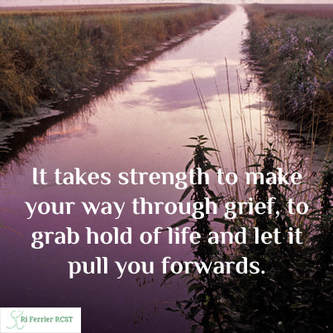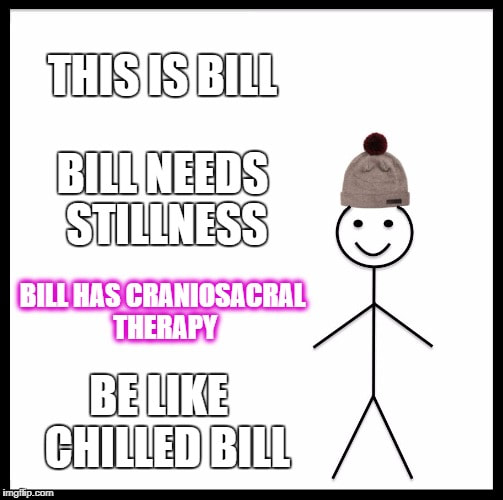We’re at a key turning point, a revolution if you like, for dementia right now. It’s a good time to make sure you are up to speed with the latest advice. Diet is key and there are many resources online to ensure you are eating the optimum anti-inflammatory foods. Here is a recent one from Harvard
How can craniosacral therapy make a difference? Trials with craniosacral therapy are showing promising results for working with inflammation and dementia and one of the reasons why is that craniosacral therapy sessions encourages the flow of CSF. Cerebrospinal fluid (CSF) is a clear, colourless liquid that bathes the brain and spinal cord. We know that it is incredibly important to our health and well-being but it is still surrounded in mystery. There are some startling facts: in middle age, the flow of CSF is half that of a normal adult. And as people reach 60 +, doctors can see on a MRI that their brains start to shrink. Also when people have senile dementia, their flow of CSF is 75% less! In a recent podcast, Michael Morgan, used a great analogy for this deterioration in CSF flow: imagine a river flowing freely where over time the water table lowers until eventually it dries up. What you are left with is sludge (amyloid plaques). This creates a situation where more and more toxins form so the million dollar question is – if we can find a way to increase the flow of CSF to near normal levels, would the sludge wash away? What I do know for sure is that this amazing fluid, in direct contact with our brain and spinal cord, that we continually make and replace, holds some mysteries that science has not yet unlocked. And there are many exciting revolutionary findings just around the corner...  If you’re one of the unfortunate ones to have lost a loved one, you will know how grief impacts on your emotions. But you may not be so aware of how grief can weaken your body. Unresolved grief can cause chronic issues; it literally ‘gets inside the body’. This, combined with the fact that we live in a society that is still unwilling to talk frankly about bereavement and loss, means that we are often walking on a long and lonely road, with chronic physical symptoms that time does not heal or subdue. Impact on the Heart The Old English word for grief, heartsarnes, means soreness of the heart. It is not surprising then that chest symptoms are a recurring theme following bereavement or loss. Many experience heart pain or heart palpitations. Takotsubo cardiomyopathy, Broken Heart Syndrome, mimics an actual heart attack. The British Heart Foundation also recognises that grief can weaken the heart muscle and one of the heart's chambers changes its shape. Grief has also been found to increase blood pressure and blood clots. Impact on the gut Grief can exacerbate appetite loss—probably because it impacts on the pleasure taken in eating food. Some people are so impacted by grief that they no longer feel hungry. Others comfort eat to fill the gaping void that has opened up in their life. And in addition, regardless of whether you’re eating more or less, the actual process of digestion can be compromised. Other physical symptoms may include overwhelming tiredness and exhaustion, restlessness, general aches and pains, anxiety attacks, difficulty breathing, insomnia and fears. The loss of someone close can also leave people more vulnerable to infection. Memories of trauma and loss are stored in the connective tissue of the body, which is why it is not a surprise to craniosacral therapists that grief involves a huge physical effort for people - it is not simply done or felt only in the mind. It has a physical impact. For instance, I will feel grief in a client in one or more of the following ways: • The sensation of a heavy weight sitting on their whole heart and lung area • Feeling of trapped energy in the throat (where unshed tears are sitting) • The respiratory diaphragm will feel dense and ‘stuck’ • The client’s ‘rest and digest’ system can feel non-existent • The flow of the ‘breath of life’ will be severely compromised I know for myself, I was shocked at the impact on my body that losing my mum had. I couldn’t eat, I couldn’t sleep, my heart felt like it had been hit by a truck and my umbilical area felt like it had had something torn from it... It was a huge process of recovery on a physical, emotional and spiritual level. We need to acknowledge grief more in our society. We need to take it from its taboo status. We need to provide the support on the physical and on the emotional levels to help each other through. We need to raise awareness of the lesser known physical impacts. We need to talk about the body therapies that help the body to release and recover physically. But most importantly, we need to acknowledge the impact of grief – to witness and be with it, not to try and fix it or make it go away. Some losses never go away – but the physical impact of them can be cleared so that we can get on with following the flow of the great river of life to the best of our ability.
What intrigues me is the physiological impact of overwhelm and the link to the waters as I feel this could hold the keys that will help us to overcome overwhelm. From a craniosacral viewpoint, we work with the tides within – and overwhelm can suppress the healthy movement within this craniosacral system.
The symptoms of overwhelm If you wake up in the morning dreading the things you need to do and feeling anxious, chances are you’re in overwhelm mode before you even start your day. Overwhelm may show up in our lives through intense irritability or melancholy, significant anxiety and panic, stress over things that may be of little significance, or an inability to distinguish thoughts from reality. Some people will withdraw and isolate themselves. The key symptom is that all tasks are thwarted by intense emotion (the world of the waters). Other symptoms may include changes to appetite, sleeping habits or a compromised immune system: catching colds more easily, developing asthma/eczema and digestive issues. Overwhelm can start a spiral of feeling out of control, confused, and unable to make decisions. Add to this the increasing dependence on food, cigarettes, alcohol and/or drugs and it becomes a very slippery slope.... What Causes Overwhelm? It is not at all uncommon for people to feel overwhelmed at some point in their lives. In fact there is even a list of the life events that are most likely to cause it! According to the widely validated Holmes and Rahe Stress Scale, these are the top ten stressful life events for adults that can contribute to illness:
What to DO About Overwhelm? Here are three things that may begin to help you to cope with overwhelm: 1: Acceptance Be gentle with yourself. Admit and accept that you are overwhelmed. We all experience this at some time in our lives. The less we beat ourselves up about being overwhelmed, and the more accepting of ourselves we are, has a huge impact on how we can pull ourselves out of the situation. 2: Be realistic It is a fast paced life we live in and multi-tasking and being available 24/7 are becoming the way of the world. So get real – everything can’t possibly get done but what are the biggest priorities? Try and make some time for stillness, switch the smart phone off, spend some time in nature: this is how we get perspective on the important things. 3: Scan addictions Are there any substances or habits that might be contributing to a state of overwhelm? Take some time to review the crutch you unconsciously go for – it could be sugar, tobacco, drugs, alcohol... More ideas to help with overwhelm Regular exercise really does lift your mood. It also serves as a distraction from worries, and gives you some space to break out of the cycle of negative thoughts. We are hugely relational beings: the simple act of talking face-to-face with another human works wonders! From a physiological point of view, it can trigger hormones that relieve stress when you're feeling agitated or insecure, helping to calm and soothe your nervous system. Relaxation techniques such as yoga, meditation, and deep breathing activate the body’s relaxation response, a state of restfulness that is the polar opposite of the stress response. Craniosacral therapy can also assist with this. I want to finish this blog by saying that it is not okay to live our lives without pausing for breath, living for holidays and weekends. The world seems to accept that overwhelm is a necessary evil of modern day living. It is not. We do have a choice. Invest in yourself and make that choice today. |
|
May you walk in Beauty
|
Copyright of Ri Ferrier 2024
|


